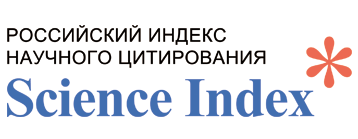SYNTHESIS AND INVESTIGATION OF THE DERIVATIVES OF QUININE ALKALOID AS POTENTIAL INHIBITORS OF THE MAIN PROTEASE SARS-COV-2 Mpro
Keywords:
main protease Mpro SARS-CoV-2 synthesis, molecular docking, quinine derivatives, pharmacokinetic properties, bioactivityAbstract
Abstract: Introduction. The appearance of severe acute respiratory syndrome (SARS-CoV-2) created a pandemic in 212 countries, resulting in over 27 million of infections and about 900.000 deaths worldwide. SARS-CoV-2 has a capability to encode cysteine proteases. The goals is to consider the optimal methods of Mpro proteases for the development of anti-SARS-CoV-2 drugs. Methods. The structure of the synthesized compounds was established by 1H and 13C NMR, IR, and UV. A detail of quantum molecular descriptors of the title compounds such as Ionization Potential (IP) and Electron Affinities (EA), Hardness (η), Softness (S), Electronegativity (μ), Electrophilic Index (ω), Electron Donating Power (ω-), Electron Accepting Power (ω+) and Energy Gap (Eg) has been calculated. Pharmacokinetic properties of the title compounds and their bioactivity were investigated. In the following, a molecular docking study was carried out to screen for effective available compound, which may work as a strong inhibitor for the SARS-CoV-2 main protease Mpro. Results and discussion alkaloid derivatives, such as (R)- (6-methoxyquinolin-4-yl)((1S,2R,4S,5R)-5-vinylquinuclidin-2-yl)methyl adamantane-1-carboxylate, (R)- (6- methoxyquinolin-4-yl)((1S,2R,4S,5R)-5-vinylquinuclidin-2-yl)methyl 5-(p-tolyl)isoxazole-3-carboxylate were obtained in 91% and 86% yields, respectively. received. The total polar surface area of natural alkaloid derivatives was observed in the range of 42.31 - 77.70 Å. Conclusion. The binding energy between SARS-CoV-2 core protease Mpro and natural alkaloid derivatives showed good binding affinity. Therefore, the studied derivatives of natural alkaloids can be used against SARS-CoV-2 main Mpro protease.

















